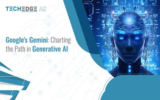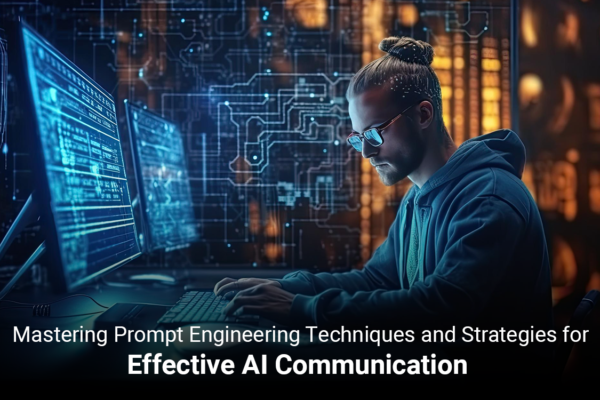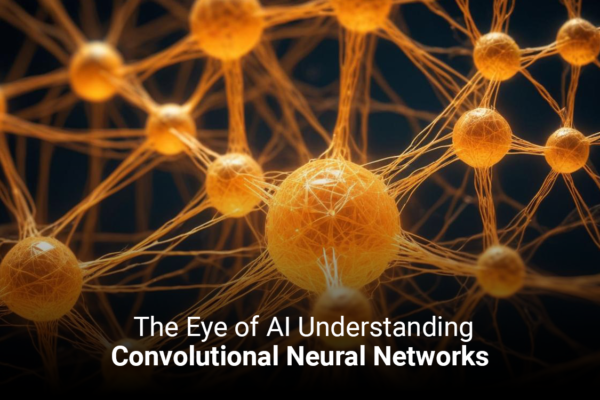In the fascinating world of artificial intelligence, where machines navigate the fine line between brilliance and unpredictability, a pivotal question arises: When AI makes a mistake, can we move beyond the usual blame game and rethink responsibility? This shift isn’t just about finding answers; it’s a fresh perspective aimed at cultivating ethical brilliance in AI.
What Happens When AI Goes Wrong?
The consequences of AI mistakes can vary from minor inconveniences to severe business impacts and extend to societal effects. Misdiagnoses in healthcare, biased hiring decisions, and autonomous vehicle accidents are examples of the real-world implications of AI gone wrong. Understanding the potential harm is crucial for preemptive measures and timely corrections.
AI Myths vs. Reality
Myth: AI is perfect and never makes mistakes.
Reality: Well, the truth is, AI isn’t infallible. It works with the data it’s been given, and errors can happen in tricky or new situations. It operates based on the data it has been exposed to, and glitches can occur in complex or novel problems. Consider the realm of medical diagnostics, where AI might encounter challenges in accurately interpreting rare conditions or unusual patient presentations, highlighting that AI, while powerful, is not without its learning curve.
Myth: AI understands things as humans do.
Reality: AI is evolving, and achieving proper understanding remains challenging. Future advancements may address this, but navigating the complexities of genuine comprehension poses difficulties for now. AI doesn’t really “get” things as we do. It processes info by spotting patterns in data, but it needs a proper understanding and consciousness.
Key Mistakes in AI Development
Identifying mistakes is crucial for the responsible development and deployment of AI systems. It allows for continuous improvement and ensures ethical and accountable use of this transformative technology.
Bias and Fairness
AI models can inherit tendencies present in training data, leading to discriminatory outcomes. Ensuring fairness and addressing bias should be a priority in AI development.
Lack of Transparency
When AI systems operate as “black boxes,” it becomes challenging to understand their decision-making processes. Transparency is essential for accountability and trust.
Data Quality Issues
Garbage in, garbage out. Poor-quality training data can result in inaccurate predictions and decisions. Rigorous data quality checks are necessary to mitigate this risk.
Overreliance on AI
Blind trust in AI systems without human oversight can lead to catastrophic consequences. Human supervision is crucial to intervene when AI makes mistakes.
Who is liable when AI goes wrong?
Developers and Engineers Behind the Scenes
The folks who built and coded the AI can find themselves in the hot seat. If there are bugs, biased algorithms, or they don’t do enough testing, they might be the ones facing the consequences.
Organizations and Employers
The companies putting AI into action can’t escape scrutiny either. If they didn’t keep an eye on what their tech was up to, didn’t test it properly, or just looked the other way, they might be on the hook for any fallout. For instance, 85% of big data projects fail, but your developers can help yours succeed (Gartner)
Data Providers
If the AI was trained on flawed or biased data, those who supplied the info could be in trouble. Ensuring the data going in is top-notch is a big deal to prevent wonky AI outcomes.
Government Rules and Policymakers
Regulators and policymakers might get side-eyed if they need to set up clear guidelines. If there’s a lack of rules, it could contribute to AI systems going rogue.
Users (yeah, that’s us)
In some cases, users might share some blame. If we blindly follow what the AI says or does, we could be part of the problem. But, let’s face it, the intricacies of how AI operates might sometimes be unclear to us.
Turning Mistakes into Growth Opportunities
Redefining Mistakes as Opportunities
Rather than viewing AI mistakes as glitches in the system, what if we reframed them as opportunities for growth? Adopting an agile mindset, where learning from errors becomes integral, paves the way for AI systems to evolve dynamically. Each misstep is not a setback but a stepping stone toward more robust, adaptable, and ethically sound AI.
Collective Responsibility in the AI Lifecycle
In AI development, accountability should not be singular but collective. Imagine a collaborative ecosystem where developers, users, and AI engage in an ongoing dialogue. We can create a shared responsibility network that transcends individual blame by embedding ethical considerations at every stage of the AI lifecycle, from inception to deployment.
Holistic AI Governance
Instead of relying solely on regulations and legal frameworks, envision a holistic AI governance model. A dynamic system where ethical considerations, societal impact assessments, and continuous feedback loops are seamlessly integrated. This paradigm extends beyond compliance, fostering an environment where AI systems are continually refined in response to evolving ethical standards.
AI Auditing for Ethical Fitness
Consider a novel concept of AI audits designed for functionality and ethical fitness. A future where independent AI auditors assess algorithms for accuracy, biases, transparency, and adherence to ethical principles. These audits could serve as a benchmark for excellence, incentivizing developers to prioritize ethical design considerations.
Inclusive AI Decision-Making
As AI systems increasingly influence decision-making, let’s explore democratizing the process. AI systems that involve diverse voices in decision-making through decentralized models. By democratizing the AI decision table, we move towards designs that reflect a collective ethical conscience rather than a singular perspective.
Ethical AI Champions
Microsoft’s Ethical AI Framework
Microsoft has been a trailblazer in integrating ethical considerations into AI. Their AI principles prioritize fairness, transparency, and accountability. By embedding these principles into their AI systems, Microsoft sets a precedent for ethical AI practices across various applications, from cloud services to productivity tools.
OpenAI’s Commitment to Safe and Beneficial AI
OpenAI, known for its advancements in artificial general intelligence, strongly emphasizes safety and the broad benefit of AI. Through research collaborations and open-sourcing safety-related findings, OpenAI is committed to ensuring that AI technologies are developed and deployed responsibly for humanity’s use.
Conclusion
As we venture into this new territory, let’s not just look for who’s to blame when AI messes up. Instead, picture a whole new world where mistakes are like sparks for improvement, with everyone sharing the responsibility, and AI is naturally good and ethical. Our journey to a unique and ethical AI future doesn’t start with pointing fingers but with a bold mix of creativity and responsibility. It’s about reshaping how we think, understanding that in the AI world, mistakes aren’t roadblocks but stepping stones toward a future where innovation and doing the right thing go hand in hand.
Source
Asay, M., Staff, T., Clarke, M., McQuarrie, K., Millares, L., Azhar, A., & Abbott, B. (2023, March 31). 85% of big data projects fail, but your developers can help yours succeed. TechRepublic. https://www.techrepublic.com/article/85-of-big-data-projects-fail-but-your-developers-can-help-yours-succeed/






















